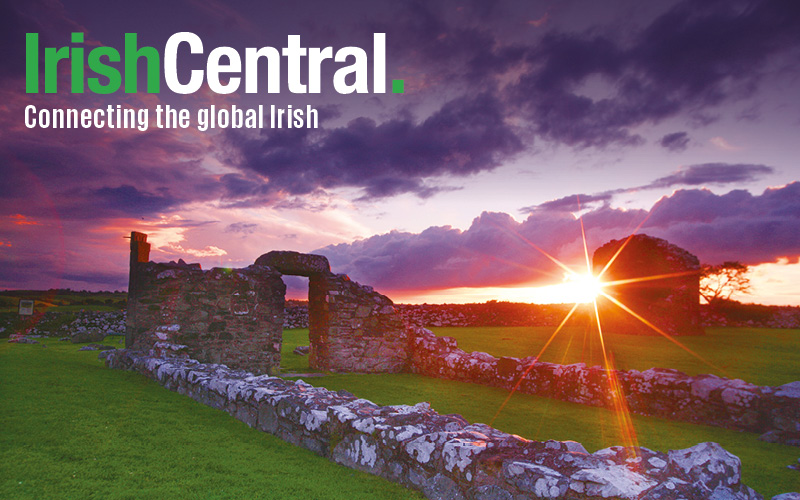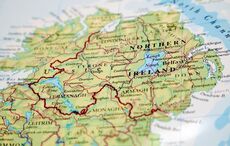On Thursday September 18, 2014 the Scottish people will vote to declare independence or stay part of the United Kingdom.
Whoever thought that the worst nightmare of Belfast Loyalists would be in danger of coming true this year? But ‘tis true. They and those that think like them are dependent on a TAIG, the loyalist term for a Catholic, to preserve the Union. The Taig, Mr David Cameron of Eton and Westminster, has emerged as the chief Toff Against independence Granting (Taig) for Scotland.
Candidly I’ve always believed that the dominant theme in Scotland’s debate on independence was an unstated one: 'Oh Lord make me good but not yet.' We could go on discussing the symbolism of the fact that a British Prime Minister recently chose London rather than Edinburgh to deliver his State of the Union message, but the point of his recent speech is that we really are getting to the sharp end of the devolution debate.
The ‘not yetters’ have either to make use of that pot or get off it. I am an unequivocal believer in independence for Scotland, the unity of Ireland and as much independence in decision taking as regions emerging from a colonial past can reasonably manage.
I see no virtue in merely declaring independence so that a handful of zealots can do a Mugabe on a once prosperous area and take an oath of poverty which the people who are not Zealots have to observe. I genuinely believe that nationality, the Nation, is an extension of the family, the clan and that there is a pride and an energising creativity in being independent which transcends reliance on the crumbs from the rich man’s table in a faraway metropole.
The Republic of Ireland has had its share of calamitous self-inflicted wounds since independence, one of the worst being the recent orgy of reckless trading presided over by government and facilitated by corrupt bankers, civil servants, financial institutions and the professions.
Bernard Shaw’s dictum that all professions are a conspiracy against the people was only too well borne out by Irish lawyers, accountants and the stock broking fraternity. They advised people to invest their life savings in banks run by their pals, from whom they knew very well that a day of reckoning was coming but continued none the less to funnel funds into these financial monsters so as to puff both prices and their commissions.
The result has been a tidal wave of unemployment, bankruptcies, emigration and suicide, the rates for which are currently more than fifty percent above pre-crash levels. All this, of course, has long term implications for the hopes for a united Ireland. But the same ability to make wrong decisions which independence confers also gives a people the right and the ability to correct mistakes and Irish confidence is currently growing by the month as harsh medicine was taken, lessons were learned and the economy is visibly starting to take off again.
Scotland has a proud tradition of achievement. Scottish soldiers, scientists and engineers have added to the reputation of Scotland in every corner of the globe. I believe that with independence the creativity and economic drive which is now being syphoned off to the south of the border could really make the Flower of Scotland bloom. Who knows, some improvement might even be wrought in the standard of Scots rugby.
North Sea oil reserves are almost certainly far greater than the public has been led to believe and the region attracts colossal revenues both from whisky distilling and tourism. Scotland is literally one of the most beautiful places in the world and the number of its visitors can only grow with the expansion of budget air travel.
The Irish Development Authority (IDA) is recognised worldwide as a leader in the race to attract inward investment to small countries. From my friends in the organization I know that its Scottish opposite number is regarded by the Irish as a formidable rival and, though it would give my own people further competition, I have no doubt that the stimulus of independence would increase inward investment to Scotland.
Whatever reasonable period of turbulence the country might expect to undergo after independence I have no doubt that the business acumen of the Scots and their tradition of hard work and study would greatly increase prosperity in the wake of independence.
The only caveat I will enter if I may, based on our dreadful experiences in Northern Ireland on the evils of sectarianism, is that political and religious leaders and all sides of the independence debate should always be mindful of the need to avoid stirring up ancient religious passions. Sectarianism, the monster that lurks deep in the psychology of both Ireland and England, is a destructive flame only waiting to be fanned into life by the emergence of a demagogue like Ian Kyle Paisley.
The Scots have nothing to fear from independence but fear itself. After all neither Braveheart nor Robert the Bruce was an Englishman.
* Tim Pat Coogan is Ireland’s leading historical writer. His blog can be read on Timpatcoogan.com




Comments